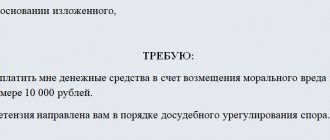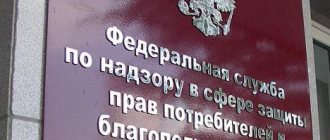When do you need a power of attorney for a child?
Some parents are concerned about the problem - is their permission required for a teenager to travel unaccompanied?
At what age can a minor travel unaccompanied by an adult?
The rules for traveling a child are regulated by Art. 20, Article 21, Article 22 of Law No. 114 Federal Law of the Russian Federation of August 15, 1996 “On the procedure for leaving the Russian Federation and entering the Russian Federation”, which provides the following basic provisions:
- A teenager does not have the right to move independently until the age of 12.
- Moving with teenagers under 12 years of age in the Russian Federation can be carried out with elders, subject to the mandatory consent of the father and mother.
- From the age of 12, a teenager has the right to move independently across the territory of the Russian Federation, without the presence of elders.
- A power of attorney for a baby under 2 years old may be required from two parents only when leaving the Russian Federation.
The departure of a teenager to another state is permitted only upon presentation of a power of attorney for the teenager, which is confirmed by a notary. In this case, a minor is considered to be a teenager under 18 years of age.
( Video : “Do I need to issue a power of attorney for a child”)
How is a power of attorney issued to accompany a child by a coach to Belarus?
8.2. Sergey. You need to obtain consent from a notary for the child to travel accompanied by an adult citizen. Take with you the original passport and birth certificate of the child (must not be laminated). In the consent, you write down (this will be done by the notary’s technical assistant) the last, first and patronymic name of the trainer. It's enough. Good luck to you.
9.1. It is in the presence of a power of attorney that responsibility for the child falls on those to whom he is entrusted. Register with a notary, it’s safer.
10. Evgeniy: Hello, please tell me for how long I can make a power of attorney for my daughter to travel around Russia with her coach?
I think the notary is misleading the parents by saying that the power of attorney is valid for 1 month, what nonsense.
10.1. According to Art. 186 of the Civil Code of the Russian Federation, if the power of attorney does not indicate its validity period, it remains valid for a year from the date of its execution.
When reading this norm directly, the maximum validity period of the power of attorney is not limited.
11.1. Don't worry about it - coordinating the organized departure of children to competitions is not easy; if something happens on the road and there is no approval, the daughter will be held liable, even criminally.
12.1. If a minor child is not accompanied by a parent or guardian, he will have to provide written permission from the parent or guardian to cross the border of Belarus. A mandatory requirement for such a permit: it must be certified by a notary. As well as the child’s documents, birth certificate or passport.
13.1. Lera, yes, you can make a power of attorney for the coach.
14.1. Drawing up a power of attorney is a paid service, contact a lawyer in person.
14.2. You either need to register there yourself, everything you trust, or order the work from a lawyer in a personal message.
15.1. No. Will your child be taken abroad for sexual slavery, but the power of attorney says that you authorized this? You yourself don’t understand how dangerous this is. Make a separate power of attorney for each coach.
16.1. At the age of 13, a son can travel on a regular bus (intercity) without an adult, since he enters into a small household transaction on his own behalf. The rules for the carriage of passengers do not establish restrictions for 13 year old passengers.
Article 28. Legal capacity of minors 1. For minors under fourteen years of age (minors), transactions, with the exception of those specified in paragraph 2 of this article, can be made on their behalf only by their parents, adoptive parents or guardians. The rules provided for in paragraphs 2 and 3 of Article 37 of this Code apply to transactions of legal representatives of a minor with his property. 2. Minors aged six to fourteen years have the right to independently carry out: 1) small household transactions; 2) transactions aimed at obtaining benefits free of charge, which do not require notarization or state registration; 3) transactions for the disposal of funds provided by a legal representative or with the consent of the latter by a third party for a specific purpose or for free disposal. 3. Property liability for transactions of a minor, including transactions made by him independently, shall be borne by his parents, adoptive parents or guardians, unless they prove that the obligation was violated through no fault of theirs. These persons, in accordance with the law, are also responsible for damage caused by minors. GOVERNMENT OF THE RUSSIAN FEDERATION
DECISION of February 14, 2009 N 112
ON APPROVAL OF RULES FOR TRANSPORTATION OF PASSENGERS AND BAGGAGE BY ROAD TRANSPORT AND URBAN GROUND ELECTRIC TRANSPORT
17.1. If the parents make this power of attorney, be sure to indicate in it what actions are allowed to your representative (trainer) and for what purpose the power of attorney was issued and, most importantly, the period; your child cannot issue a power of attorney himself since he does not yet have full legal capacity, and if he is 18 years old, then the coach does not need a power of attorney.
18.1. Consent from both parents, since the child will be accompanied by a third party. If neither of the parents goes instead of the coach or together, consent is not required.
19.1. Check with the person who is requesting a notarized certificate from you, on the basis of which they require it to be certified in this way. All the best!
19.2. Although it is possible to contact a notary in such a situation, it is not at all necessary. The law requires notarization only of powers of attorney or permits to travel abroad.
20.1. Dear visitor!
NO, you do not need a power of attorney - if the children do not leave the carriage. All the best, I wish you good luck in resolving your issue!
21.1. Yes, of course, you need notarized consent from your parents, since you are crossing a state border here, they will definitely require it.
21.2. Of course, you will need to issue a notarized power of attorney in the name of the coach on the basis of Article 185 of the Civil Code of the Russian Federation.
21.3. Article 20. Federal Law of August 15, 1996 N 114-FZ “On the procedure for leaving the Russian Federation and entering the Russian Federation” A minor citizen of the Russian Federation, as a rule, leaves the Russian Federation together with at least one of his parents, adoptive parents, guardians or trustees. If a minor citizen of the Russian Federation leaves the Russian Federation unaccompanied, he must have with him, in addition to his passport, a notarized consent of the named persons for the departure of the minor citizen of the Russian Federation, indicating the period of departure and the state(s) he intends to visit .
21.4. In this case, a notarized power of attorney is required when both parents cross the border. In accordance with the legislation of the Russian Federation.
22.1. Of course, a notarized power of attorney will be required, since the child will be traveling with a stranger. Good luck and all the best
22.2. If the educational institution does not require a power of attorney, it is not needed. Check with the administration of the educational institution for information.
22.3. Russian legislation does not stipulate the obligation to have a power of attorney from parents when a minor child travels around the country. However, acting in the best interests of the child and for the safety of the child, any law enforcement officer or official may ask the accompanying person to provide parental permission for the child to travel with that person. This can happen when checking into a hotel or boarding house, when checking in for a flight or boarding a train. Moreover, a power of attorney (permission) may be required in connection with a curfew (if one is introduced in the region), during which minors can only be on the street if accompanied by an adult. The power of attorney can be drawn up in any form on behalf of the parent or both parents (preferably) and written by hand (with the obligatory indication of the date of its writing and validity period (see Article 185 of the Civil Code of the Russian Federation).
23.1. You don't need to print anything. The notary will issue you the necessary power of attorney. The notary will not certify the power of attorney you have printed and written. All the best.
23.2. Alena, the power of attorney is issued directly from the notary on a special form. Good luck and all the best
23.3. You don’t need to do this, it won’t affect the cost anyway, this is the notary’s job, he will do everything as needed.
23.4. In accordance with the "Fundamentals of the legislation of the Russian Federation on notaries", the notary certifies the signature of the person who issued the power of attorney and checks its content for compliance with the Law. That is, you can independently draw up the text of the power of attorney to have it certified by a notary. However, the notary is unlikely to certify it and you will not receive a refusal to perform notarial acts either. In addition, even if a notary certifies the text of the power of attorney printed by you and your signature, the price for this power of attorney will not change. Thus, it is advisable to contact a notary to draw up a power of attorney on letterhead.
24.1. Yes, of course, if a minor child is traveling with a stranger who is not his parent, then there must be a power of attorney notarized by the parents.
24.2. Yes, when moving with a minor, the accompanying person must have the notarized consent of one of the parents. Good luck.
24.3. Good afternoon, dear Larisa Aleksandrovna, in addition to the power of attorney, the coach must be given consent to take the child abroad from both parents. Contact a notary. Sincerely.
24.4. Yes, a power of attorney is required, because the child is traveling with a stranger. The power of attorney must be notarized.
24.5. Of course, under the circumstances you described, notarized parental consent is required.
25.1. Each parent must issue a separate power of attorney for the coach specifically for their child. Good luck and all the best
25.2. In this case, no power of attorney is required, since regardless of the presence or absence of a power of attorney, the coach, who is officially an accompanying person, is responsible for the children.
25.3. The law does not prohibit issuing a single power of attorney - try asking a notary whether he will undertake such a matter. Good luck to you!
25.4. In this case, it is enough to have an agreement, and the coach is already responsible if he is included in the agreement as an accompanying person, so a power of attorney is not needed here.
26.1. Yes, in your situation it is necessary to issue a power of attorney with the obligatory indication of the passport details of the child’s coach. Currently, the demand from teachers has been tightened and they now need to have permission from the children's parents for all activities in which children participate, including travel, accommodation, training and competitions. But parents can now “ask” a specific person.
27.1. You can find out the exact cost of issuing a power of attorney directly from a notary; on average, the price is up to 1.5 tr.
28.1. If departure does not involve traveling abroad, then it is not necessary. Typically, notarial consent for a child’s departure is required when traveling outside the Russian Federation; the cost of notarial services varies from 700-1300? at notaries.
29.1. To travel with children within Russia, no one needs any consent, powers of attorney or permission from anyone.
29.2. No, in Russia you definitely don’t need any power of attorney, especially if children are going to competitions in an organized group from a sports school.
29.3. Vladimir! It depends on the age of the child. According to Order of the Ministry of Transport of the Russian Federation dated June 28, 2007 N82, paragraph 104, children over the age of twelve can be transported unaccompanied by an adult passenger or a passenger who, in accordance with the civil legislation of the Russian Federation, has acquired full legal capacity before reaching the age of eighteen. But in some cases, for example, when applying to a medical institution, a power of attorney is necessary.
30.1. Dear Irina, you can contact a notary and he will draw up the document you need. Good luck and all the best
30.2. If you need a notarized power of attorney for a coach, then for this you need to contact a notary office, he will draw up such a document.
The law establishes that a power of attorney for a child is issued when traveling abroad, but it is not clear whether it is necessary for accompanying persons in Russia to have this document with them.
The editors of Profi.Travel, together with Georgy Mokhov, founder of the legal agency “Persona Grata” (Moscow), chairman of the legal commission of the Russian Union of Travel Industry, prepared a “question-answer” column, taking as a basis the questions that you asked us.
What does the law say: do you need a power of attorney for a child to travel around Russia?
Based on the Civil or Family Codes of the Russian Federation, as well as Federal Law No. 48-FZ of April 24, 2008, as amended on November 28, 2015, domestic travel of children is not subject to any written consent from parents or guardians.
What may happen in reality: there is no wording in the law that when traveling in Russia a power of attorney must be made for a child, however, for example, in some cities there is a so-called curfew rule, and if a child is stopped, his parents will not be found, and If the accompanying person does not have a power of attorney, problems will arise. Is it so?
Russian legislation does not establish that when a minor child travels around the country, a power of attorney for the accompanying person or other consent from the parents is required. However, acting in the interests of the child and for the purpose of his safety, any law enforcement representative or official, within the scope of his powers, may ask the accompanying person to present the parental permission for the child to travel with him, or to confirm the relationship.
A power of attorney may be required from an accompanying person if:
hospitalization of the child is necessary; information about the child is needed for his search/identification; It is required to confirm the relationship between the child and the adult accompanying him: when checking into a hotel or boarding house, checking in for a flight or boarding a train.
Moreover, a power of attorney (permission) may be necessary due to the specifics of regional legislation or local features of the security regime. If the child is alone, unaccompanied by adults, or commits illegal actions, he may be detained, and only the person formally responsible for him at the moment can pick up the minor from the police station. Or law enforcement officers will take measures to find the parents and the child will await their arrival.
To whom can parents write a power of attorney? Are there any restrictions, should it be only relatives?
There are no restrictions. This can be any person - a teacher, coach, medical worker, representative of a sports camp or recreation camp, group leader, etc. For example, permission may be issued for a child to participate in a sports competition and travel with a coach.
Can a power of attorney be issued to a minor accompanying brother or sister?
No, it cannot, since civil capacity occurs upon reaching the age of majority (Civil Code of the Russian Federation, Article 21. Citizen’s capacity). Children from 2 to 12 years old travel exclusively when accompanied by an adult.
From the age of 12, children are allowed to travel independently.
If a child 12 years of age or older uses intercity transport, in this case he becomes under the responsibility of the carrier, which is stipulated by the internal regulations of the companies on the conditions for the provision of services.
Air transportation. According to clause 104 of the “General Rules for Air Transportation of Passengers, Baggage, Cargo and Requirements for Services for Passengers, Shippers, Consignees,” children aged 2 to 12 years are transported in accordance with the following conditions:
accompanied by an adult passenger or a passenger who, in accordance with the civil legislation of the Russian Federation, acquired full legal capacity before reaching 18 years of age; unaccompanied by the specified passenger under the supervision of the carrier, if such transportation is provided for by the carrier’s rules.
Clause 105 of the rules: unaccompanied children aged 2 to 12 years can be transported under the supervision of the carrier only after parents, adoptive parents, guardians or trustees, in accordance with the carrier’s rules, have submitted a written application for the carriage of an unaccompanied child. Also, at the request of parents, transportation under the supervision of the carrier may extend to children under the age of sixteen.
Railway transport. According to clause 30 of the “Rules for the provision of services for the transportation of passengers by rail, as well as cargo, luggage and cargo luggage for personal, family, household and other needs not related to business activities”, children under 10 years of age are not allowed to travel on long-distance trains unaccompanied by adults, with the exception of cases of travel of students using railway transport to attend educational institutions.
How and where is a power of attorney issued to accompany a minor child in Russia? What documents are needed?
To avoid misunderstandings and quickly resolve controversial situations, parents should issue a permit in the name of the person who travels with the child and is responsible for him. A power of attorney can be drawn up in any form on behalf of one or two parents and written by hand. There are no strict requirements for the application form.
In this case, the text of the power of attorney must satisfy the requirements of Article 185 of the Civil Code of the Russian Federation:
must contain information about who entrusts the accompaniment of the child; full name of the child, year of birth, information about documents (birth certificate); information about the accompanying person, his passport details.
If the accompanying person is a relative, you can indicate the degree of relationship. If the accompanying person is an official or employee of an educational institution, indicate the position and name of the organization.
validity period of the power of attorney; in which direction the child should go (list of cities and towns visited); The application must list all the actions that the accompanying person is authorized to perform while traveling with the child.
It would not be superfluous to mention in the application that delay at the vacation spot beyond the specified period is not allowed. if the text is written by hand, the handwriting must be legible, and the information about the documents must not contain errors. the power of attorney is signed by one or two parents.
If desired, permission can be obtained from a notary; for this, parents must provide their passport and identification document of the child.
Can only one parent give a power of attorney for a child?
Maybe, if there is no injunction or other restrictions. But it should be taken into account that the permit in Russia is issued in a free form; therefore, compliance with prohibitions and restrictions remains on the conscience of the one who issues the permit to the accompanying person; it is impossible to verify this.
What documents should the accompanying person have with him?
In addition to permission for the child to travel around Russia from the mother and father, the accompanying person must have documents proving his identity, the child’s birth certificate, or a passport if his age has reached 14 years, as well as a health insurance policy for the child.
A common situation: a married couple is going through a divorce, the woman wrote a power of attorney for the grandmother and sent the child to the Russian South. At the same time, the husband wrote a statement prohibiting the grandmother from traveling with the child. Did the woman break the law? What sanctions may follow?
For a child to travel within the territory of the Russian Federation, the consent of the second parent is not required. Parents are in the process of divorce, which means legally they are still married and have equal rights in relation to the child. In the event that there is no court decision that has entered into force to determine the order of residence of the child with the father, the woman has not violated the law and the child can travel throughout the Russian Federation without hindrance.
Legal agency "Persona Grata" provides legal support to travel companies in the following matters:
— Operational legal consultations – from 500 rubles. — Services for registration/re-registration of enterprises and firms — Agreements for travel agencies: ready-made forms, individual development, audit and adjustment; — Outsourcing: legal and accounting services for travel companies; — Pre-trial proceedings: preparation of claims, statements of claim and other procedural documents; - Court. Arbitration: case management, enforcement proceedings, protection against collection
Power of attorney for a child when traveling abroad
Official permission from the father and mother for a teenager to leave the Russian Federation is required in two circumstances:
- Upon receipt of a visa at the embassy.
- When leaving the Russian Federation.
In the first circumstance, the power of attorney is issued in accordance with the law of the state where the teenager is sent.
In the second option, permission to leave is issued in accordance with the federal law of the Russian Federation.
To purchase permission for a teenager to leave the Russian Federation, you need to prepare a set package of documentation.
In addition to the prepared certificates, you will need to provide information about the duration of the trip and which countries you plan to visit.
If a child is traveling from the Russian Federation with his father or mother, then permission to leave is not required. If a teenager leaves the Russian Federation with other relatives or in a group, then in this case permission to leave from his father and mother will be required.
Adults often ask the question: Is it possible for only one parent to consent in this option?
Issuance of consent to departure signed by only one of the parents is carried out upon presentation of:
- Certificates that the child is being raised only by the mother.
- Certificates from the registry office confirming that the father in the baby’s documents is recorded from the mother’s words.
- Certificates (copies) of the death of father or mother.
- Copies of the court verdict on deprivation of parental rights.
- Certificates from the Ministry of Internal Affairs that the parent’s place of residence is unknown.
All copies of documents must be notarized.
If the father or mother filed a petition with the migration agency to object to the teenager’s departure from the country, the problem can only be resolved by the court.
If the mother or father went on a business trip or are far away for another reason, then this option allows the execution of two separate notarized consents to leave.
Cost and validity period
The cost will depend on the specific notary company. They have the right to set different prices for their services. On average, the cost of such a power of attorney ranges from 500 to 2000 rubles. Certification by the clinic administrator is usually not paid for. The form is certified free of charge.
The validity period is equal to the period specified in the document. If the period is not specified, then the power of attorney is valid for a year. There are no maximum or minimum terms. The parent can set the dates at his own discretion. When the child reaches 15 years of age, if the power of attorney is still valid, it will automatically lose its force. Since the child will begin to represent himself in medical institutions.
Since 2011, according to 323-FZ (“On the basics of health care in the Russian Federation”), when a child visits a medical institution unaccompanied by parents or guardians, the representative must provide a certified power of attorney. Such a document is required in all clinics.
Across Russia
When traveling around the Russian Federation, there is no need to draw up a power of attorney for a teenager.
At the same time, having such a form can be useful. So, if it is available, neither train conductors, nor airplane and ship crew workers, nor the transport police will have questions about accompanying a child by an adult citizen. It should be noted that the permit is a purely formal document. After all, if a baby travels with his grandparents, then proving the relationship is very problematic, since there are no such records in the forms confirming the baby’s identity.
Therefore, when accompanying a child, it is advisable for a senior citizen to stock up on the following documents:
- Passport.
- Baby's birth certificate.
- A permit document from the father and mother to accompany the baby.
It should also be borne in mind that a teenager has the right to travel on trains after he turns 10 years old, and on planes or buses when he reaches 12 years old.
At the same time, we must take into account that there are cities where a kind of curfew has been established, limiting the presence of a teenager in public places without adults. If this circumstance is not observed, the teenager may be detained until his relatives arrive.
To summarize, we can note the following: despite the fact that when moving around the Russian Federation, a power of attorney for a teenager is not required, having one will not be superfluous.
Why do you need a power of attorney?
Only the legal representative of the child can give consent to medical intervention (and this includes even a routine examination in a clinic). Accordingly, if a child comes to a medical institution accompanied by a grandmother who does not have such status, then she must have a power of attorney from her legal representative to confirm her authority.
According to para. 2 hours 1 tbsp. 64 of the Family Code, the legal representatives of a child until he reaches the age of majority are his parents.
In case of their absence or other circumstances, for example, deprivation of parental rights or incapacity, this responsibility is assumed by adoptive parents, adoptive parents, guardians or trustees. For other persons, a power of attorney is required.
Parents can issue a written power of attorney, according to which the grandmother (or other relative) can represent the interests of their child. Notarization is not required.
Can one of the parents draw up a power of attorney for a child?
As a rule, consent to travel with a teenager is signed by both parents.
However, situations are possible when, for some reason, one of them is absent (for example, a business trip or other reason). The question arises: will a document signed by one parent receive valid status? Legislative provisions allow the issuance of such a certificate. A grandmother and a child can leave the Russian Federation with the permission of only the father and mother, but to travel with a teenager within the territory of the Russian Federation, the signature of only one of the parents is allowed. In this option, you only need to follow the general rules for drawing up a power of attorney:
- The names and passport details of the father and mother, as well as the citizen with whom the teenager will travel, must be recorded.
- The full name of the baby, the day of his birth and all the details from the document confirming his identity (passport, if he is 14 years old, or birth certificate) must be written down.
- The powers of the trustee must be specified.
- It is required to note the date of acquisition of the power of attorney and the duration of its validity, although the period may not be specified.
- Notarized confirmation of such a form is mandatory when moving across the Russian Federation. When leaving the Russian Federation, such consent must be certified by a notary.
Who draws up a document for grandmother or other relatives?
This document is drawn up on behalf of both parents, or on behalf of one of them. Only legal representatives, that is, guardians or parents, can write a power of attorney.
The fact is that without a power of attorney, the child may be provided with services that the parents did not agree to. For example, it often happens that grandmothers are supporters of vaccinations, but parents refuse them.
If the representative does not have a power of attorney, and the child receives an unscheduled vaccination, a serious controversial situation may arise. That is why only legal representatives and no one else can draw up a power of attorney.
Is it possible to write a power of attorney for a child by hand, sample
The law does not regulate the mandatory drawing up of a power of attorney using technical means. The main thing is that the document is filled with legible text and does not contain gross legal errors. These errors include:
- Incorrect filling of the name (or title, when drawing up a document by an institution) of the principal and accompanying citizen.
- Lack of information identifying the accompanying person.
- Lack of signature of the principal (unsigned permission is invalid).
- No completion date.
A manually completed power of attorney must display:
- Details of mother and father and trusted citizen.
- Displays the powers vested in the authorized person.
- Date of completion.
- Signatures of the father and mother and the person who will travel with the baby, or a seal if the document was issued by an institution.
Options for obtaining a power of attorney to visit a clinic
A power of attorney for the provision of medical services can be issued in written or printed form. There are no clear rules in this regard in the law. You can fill it out on the computer or by hand. It is more convenient for a medical institution if the representative has a printed version of the form. This is because printed text is easier to read.
Poor, illegible handwriting can lead to problems. If the doctor or clinic administrator misunderstands what is written in the power of attorney, services prohibited by the parents may be provided. Therefore, it is better to choose the option typed on a computer.
If the parent’s handwriting is legible and understandable, then filling out “by hand” takes place. This is not prohibited by law.
What documents are required to create a power of attorney?
If permission to leave the Russian Federation is issued, confirmation of signatures by a notary is required. To do this, you need to prepare the following documentation:
- Svid. birth certificate or passport, when the boy is 14 years old.
- Passports of mother and father.
- Passport of a citizen traveling with a teenager.
- Certificates confirming the legality of the mother’s or father’s consent.
- Document on marriage or divorce.
- A court ruling allowing a teenager to leave the Russian Federation if one parent disagrees.
When passing through customs and passport control you will need to present:
- International passport for a teenager.
- Civil passport or birth certificate.
- Availability of a visa.
- Medical insurance
- Permission approved by a notary.
- Reason for departure: voucher, medical. testimony, etc.
In some cases, a citizen traveling with a teenager may be asked to provide additional certificates to clarify his status. For example, if a teenager goes abroad with a coach, the latter must provide documents certifying this fact.
( Video : “How to properly issue a power of attorney”)
Rescue paper
Juvenile justice is a specialized judicial and legal system for protecting the rights of minors.
The priority is to protect the rights and interests of the child by government agencies, often to the detriment of the entire family. In fact, this is implemented in such a way that some principled citizens or unfriendly neighbors can report to the prosecutor's office or guardianship authorities that a minor is under outside supervision.
Expert opinion
Kuzmin Ivan Timofeevich
Legal consultant with 6 years of experience. Specializes in the field of civil law. Member of the Bar Association.
Compassionate departments will not ignore such statements. At best, they will study the circumstances and documentation, at worst, they will register the child with the juvenile affairs unit (PDN) or take him away from the family altogether. .
There are frequent cases when children and grandmothers are removed from transport due to the lack of accompanying papers. Also, the older generation is denied permission to release their grandson from educational institutions, and they do not provide medical care to their child at their request.
All this makes the power of attorney say: “Yes!” There are also advantages to this approach. The child in the kindergarten will not be given to just anyone, and transport guides and the police protect minors from abductions and fight homelessness.
Do I need to contact a notary?
As noted earlier, a power of attorney must be certified by a notary if a teenager goes abroad. To obtain such a form from a notary you will need:
- The presence of father and mother.
- Passports of parents and authorized persons.
- Child's birth certificate.
- Marriage certificate.
- Information about the teenager’s travel destination with a trusted person.
- Indicate the duration of the trip.
You will have to pay a certain amount to obtain such a form from a notary.
Note. You can obtain a power of attorney from a notary on a strict reporting form, with a unique number assigned to the form. The form is signed by the applicants, as well as the notary, with his signature supported by a seal.
What rights are given to an attorney?

If a representative has such a power of attorney, it is understood that he can make any decisions related to the provision of services to a minor patient. Naturally, he will be responsible to the child’s parents for all his decisions. In addition to making decisions, signing contracts and other documents, the guardian must provide medical workers with the necessary information, for example, which drugs are prohibited for the child, what he is allergic to. Of course, the guardian himself must know all these features.
The attorney has the discretion to decide whether the child needs a particular procedure. If doctors offer medical intervention, he may refuse. However, at the same time, medical workers explain to the guardian what consequences they face in case of refusal. There are rare cases when the doctors' explanations do not convince the attorney. But at the same time, in their opinion, there is a threat to the life of a minor patient. In such situations, doctors may file a claim. It is the court that must give permission to perform important medical procedures. In addition to the court, medical workers can also contact the guardianship authorities.
( Video : “Everything about drawing up a power of attorney”)
Quite often powers of attorney are issued for specific actions. Usually parents indicate them in the document. In this case, the attorney has the opportunity to perform only the listed actions. Such a document indicates that parents issue a power of attorney exclusively for certain actions. Accordingly, the authorized person has no right to perform any other actions.
How to properly issue a power of attorney

There is no need to use a special form to complete this document. A power of attorney from parents is drawn up in a free style. The main thing you need to pay attention to is the availability of all important information about the child, parents and guardian. The document can be in printed or written form. There is no fundamental difference here. But when handwritten, care must be taken to ensure that the handwriting is legible. It is possible that if the doctor misreads important information, he may provide services for which there was no consent from the parents. This is why caregivers often choose computer typing. Conventionally, the filling process can be divided into three parts:
- The introductory part should contain a so-called “header”. This includes information about the clinic for which the document is being drawn up. The date and city of compilation are also indicated here.
- The main part should contain information about the principals and the guardian. The details of their passports and other information are recorded. Information about the child is also indicated here. If necessary, parents provide any additional information. For example, can a representative issue a power of attorney, for how long will the document be valid, the powers vested in it, etc.
- The final stage is signing autographs. Official guardians must sign the document. The signature of the most trusted person will not be superfluous. When notarized, the lawyer's autograph is placed on the document.
You cannot just write a power of attorney and consider it valid. Such an important document must be certified by officials. For example, no one forbids parents to contact a notary office to have a lawyer certify the document with his signature. But this cannot be called a mandatory procedure. Employees of a medical institution can also certify the document. It is not at all necessary that this be the head physician or manager. Often this responsibility in hospitals is assigned to ordinary nurses who work at the reception desk.









